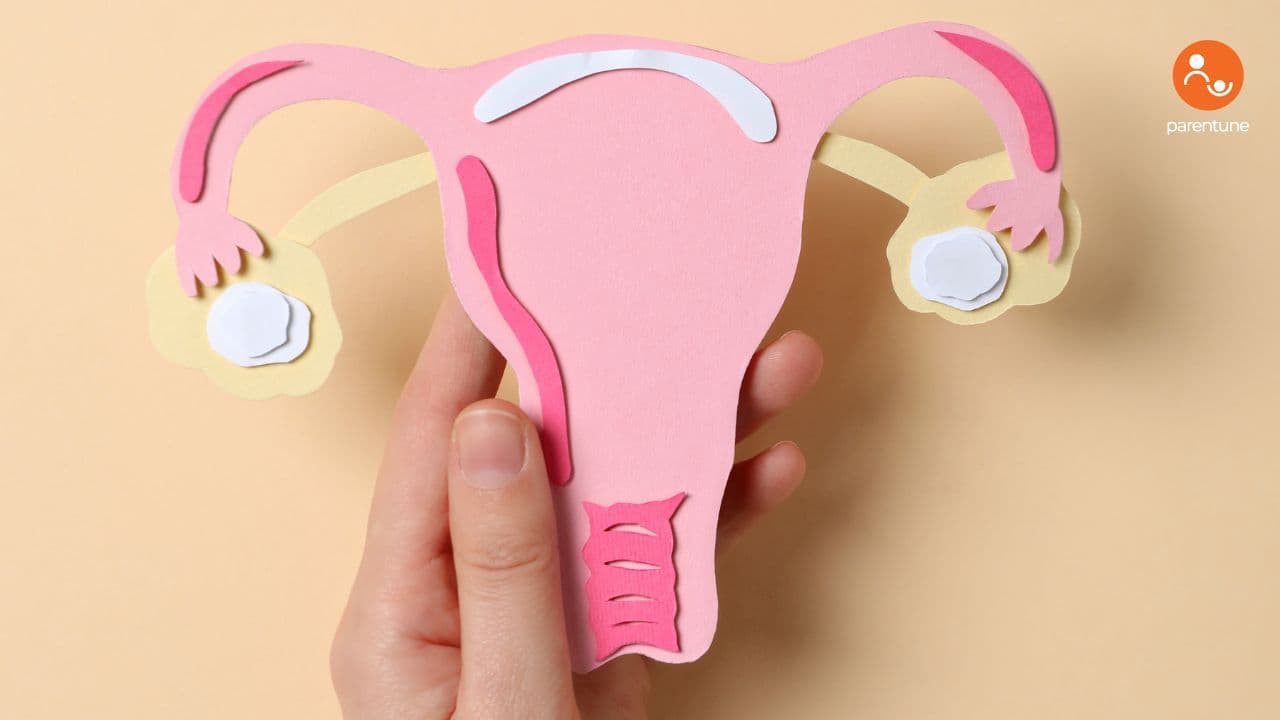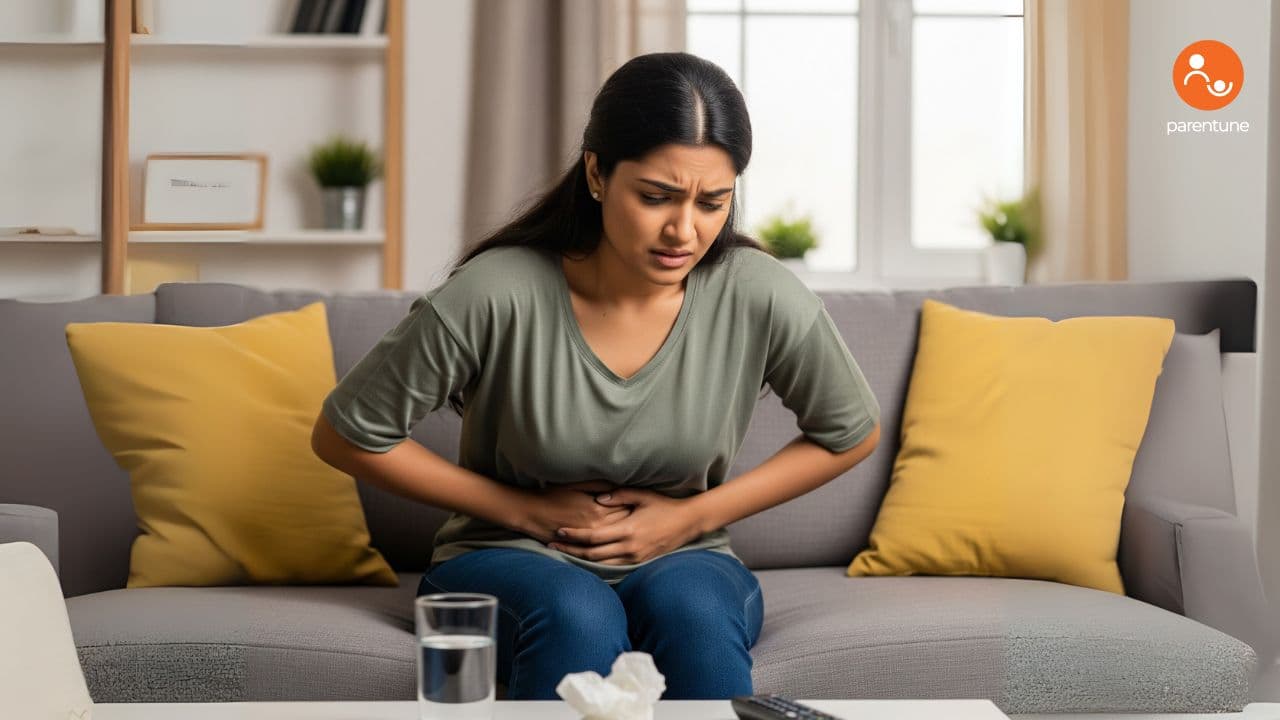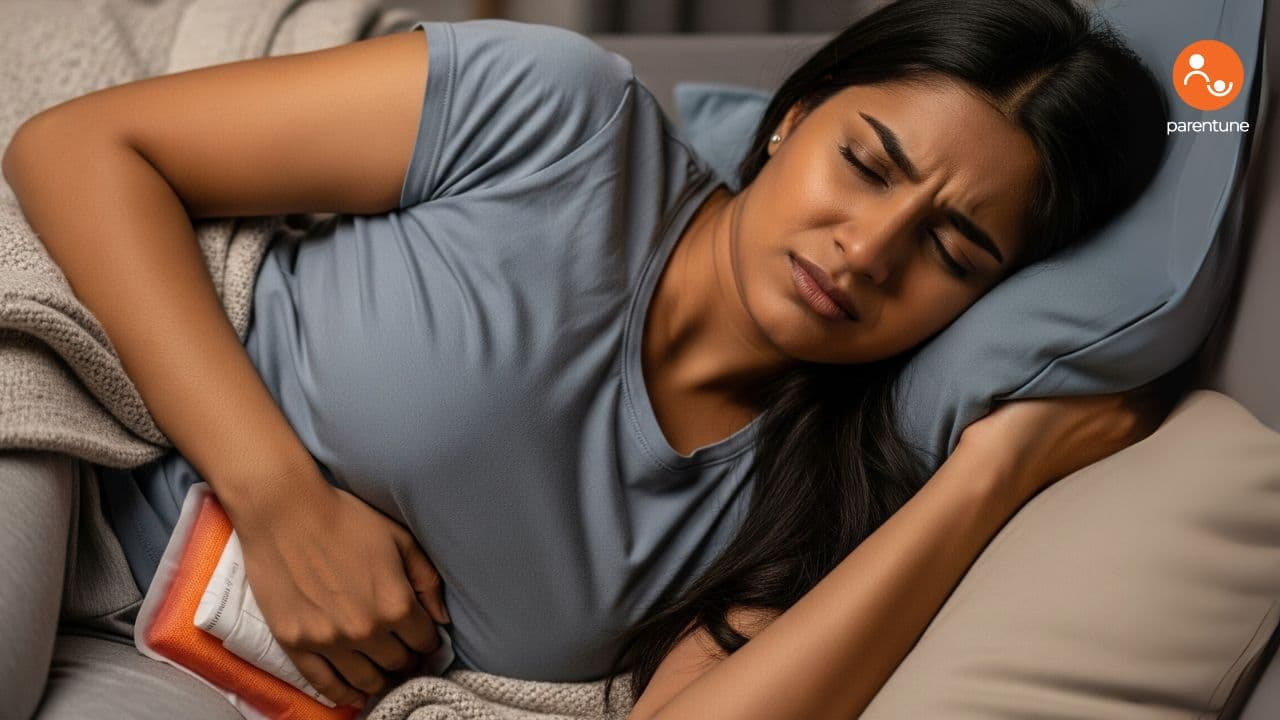medical
Can You Feel When An Egg Is Released? What Ovulation Pain Really Means

Published: 06/08/25
Updated: 06/08/25
Understanding the body's quiet signals—and what they’re really telling us
Some women feel it. Others don’t. But the body always knows.
You're folding laundry. Or walking the dog. Or maybe sitting in a meeting when it happens—
A sudden twinge in your lower belly. Sharp, dull, left, right—quickly gone or lingering just long enough to make you pause.
Is it gas? A pulled muscle?
Or could it be your body’s way of saying: An egg just left the building.
Let’s talk about mittelschmerz—that funny German word for a deeply human experience—and how it fits into the bigger rhythm of fertility, cycles, and self-awareness.
What Is Ovulation Pain, Really?
A tiny signal during a massive monthly event
Ovulation pain (technically known as mittelschmerz, or “middle pain”) is the sensation some women feel when an ovary releases an egg.
It usually shows up:
-
Around the middle of your cycle (day 13–15 for a 28-day cycle)
-
As a quick, stabbing pain or dull ache
-
On one side of your lower abdomen (depending on which ovary is at work)
Not everyone feels it. But when you do, it’s unmistakable—like a soft knock on a door you didn’t know existed.
Why Does Ovulation Cause Pain?
It’s not the egg. It’s the process around it.
The egg’s release itself is microscopic. But what surrounds it isn’t.
There are three main reasons you might feel pain during ovulation:
-
Follicle rupture
Your ovary builds up a fluid-filled follicle. When it bursts to release the egg, that stretch and pop can trigger pain.
-
Fluid irritation
After rupture, the fluid (or sometimes blood) from the follicle can irritate surrounding tissue.
-
Muscle contraction
Your fallopian tube may contract to help guide the egg, and that can tug at nearby nerves.
The entire event is a mechanical marvel. But it doesn’t always happen quietly.

Recommended Reads:
How Long Does Ovulation Pain Last?
Anywhere from a fleeting moment to a full day
For some women, it’s just a second.
For others, it’s a few hours or even 24.
It can switch sides from month to month or favor one ovary over the other. It doesn’t always appear on cue. And it doesn’t always mean something is wrong—or right.
But it does mean something is happening.
What Does Ovulation Pain Feel Like?
No two women describe it the same. But here’s how many do.
-
“Like a pinch.”
-
“A quick cramp.”
-
“Like my ovary is being flicked.”
-
“It switches sides each month.”
In the Parentune community, moms often describe it as “the pain you only start noticing once you’re trying to track your cycle more consciously.”
Which tells us something important:
Awareness amplifies understanding. Once you start listening, your body has a lot to say.
Can You Use Ovulation Pain To Track Fertility?
Yes—but don’t rely on it alone
Ovulation pain can be a helpful fertility clue—but it’s an inconsistent one.
Here’s why:
-
Some cycles come with pain, some don’t
-
It may happen before, during, or after the egg is released
-
It doesn’t guarantee fertile-quality cervical mucus or ideal hormone levels
Still, many women find it useful when combined with other methods like:
-
Basal body temperature (BBT) charting
-
Cervical mucus monitoring
-
Ovulation predictor kits (OPKs)
Pain isn’t a map. But it’s a compass needle. Use it alongside other tools.
Is Ovulation Pain Normal Or A Red Flag?
Most of the time, it’s normal. But not always.
If your pain is:
-
Mild to moderate
-
Predictable in timing
-
Short in duration
...it’s likely just part of your body’s monthly script.
But you should speak to your doctor if:
-
The pain is severe or debilitating
-
It happens on both sides
-
It lasts more than 48 hours
-
It comes with fever, nausea, or heavy bleeding
Conditions like endometriosis, ovarian cysts, or pelvic infections can mimic ovulation pain—but with bigger consequences if left unaddressed.
What Can You Do To Relieve Ovulation Pain?
Simple remedies can go a long way
You don’t have to white-knuckle through it. Here’s what might help:
-
Warm compress – eases muscle tension
-
Over-the-counter pain relief – ibuprofen or paracetamol work well
-
Hydration – reduces bloating and fluid pressure
-
Gentle movement – like walking or yoga
-
Tracking it monthly – to anticipate and prepare
The goal isn’t to eliminate all pain. It’s to feel more in tune with what’s causing it.
Can You Be Pregnant And Still Feel Ovulation Pain?
Unlikely—but confusion is common
If you're already pregnant, you’re not ovulating. That part of your cycle is paused.
But early pregnancy can mimic ovulation sensations. Cramping, bloating, and pulling feelings are common due to uterine changes.
If you’re unsure, a pregnancy test and a chat with your doctor will bring clarity.

When To Talk To A Doctor
Listen to your body. Then ask for a second opinion.
Mild, mid-cycle pain? Probably ovulation.
Sharp, lingering, or disruptive pain? Time to check in.
Trusting your instincts is the first step. But pairing that with expert input builds confidence.
That’s exactly why spaces like Parentune exist. To offer verified, community-backed answers when Google alone isn’t enough.
Because navigating cycles, symptoms, and fertility questions shouldn’t feel like a solo expedition.
Why This Conversation Matters
Because knowing your body isn’t just empowering—it’s essential
Understanding ovulation pain isn’t just about baby-making.
It’s about body literacy.
It’s about seeing your cycle not as a mysterious fog of hormones—but as a rhythm. A pattern. A quiet symphony with signals worth listening to.
And when you recognize that twinge—not as a nuisance but as a signpost—you start making decisions from a place of awareness, not anxiety.
The Bottom Line
Yes, you can feel when an egg is released. And it means your body is working exactly as it should.
But just because it’s normal doesn’t mean you have to suffer through it silently.
Talk about it. Track it. Ask questions. Seek answers.
Whether it’s through your doctor, a fertility tracker, or a trusted parenting space like Parentune, the more you understand, the less you fear.
Because once you name the signal, you start owning the story.
Be the first to support
Be the first to share

